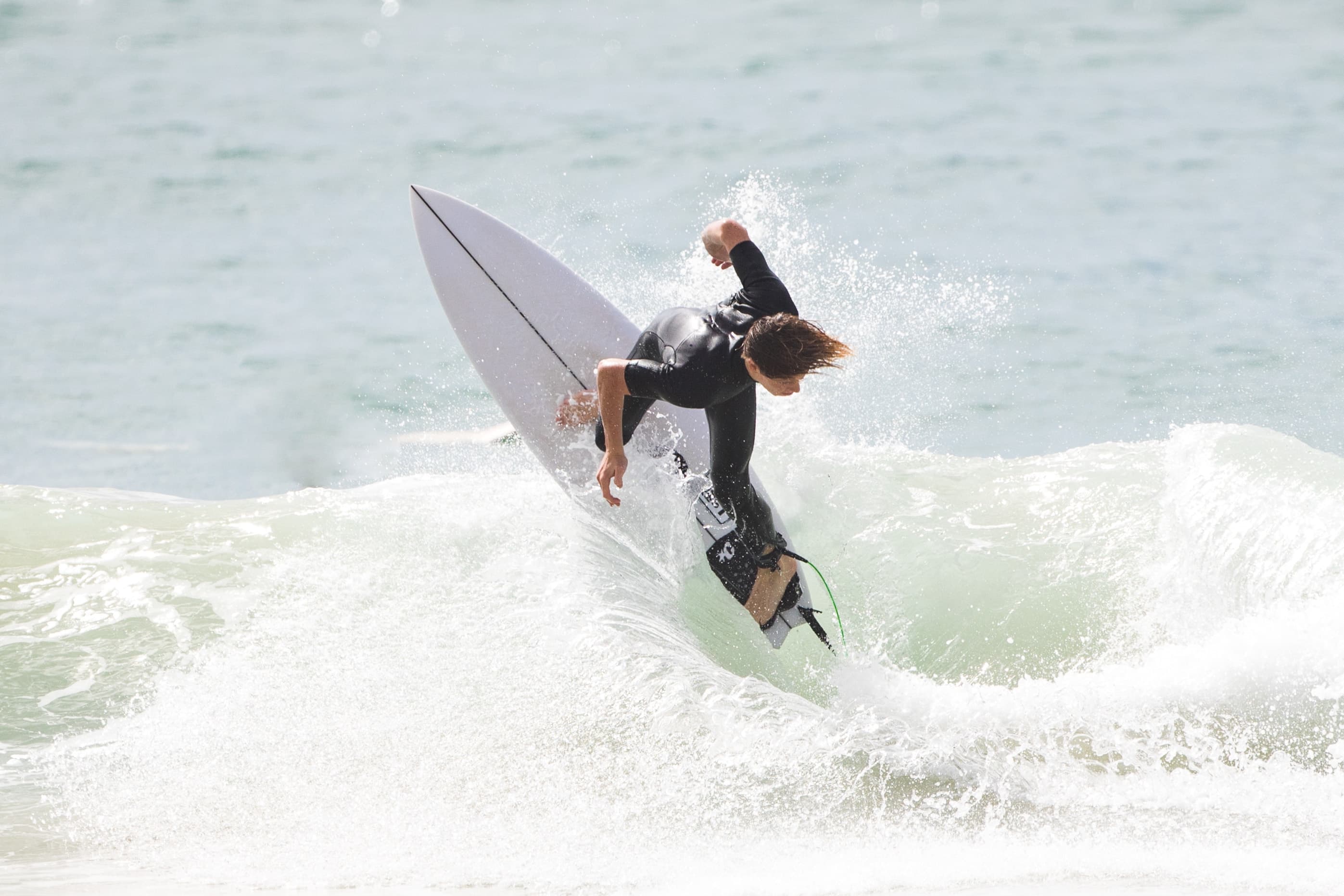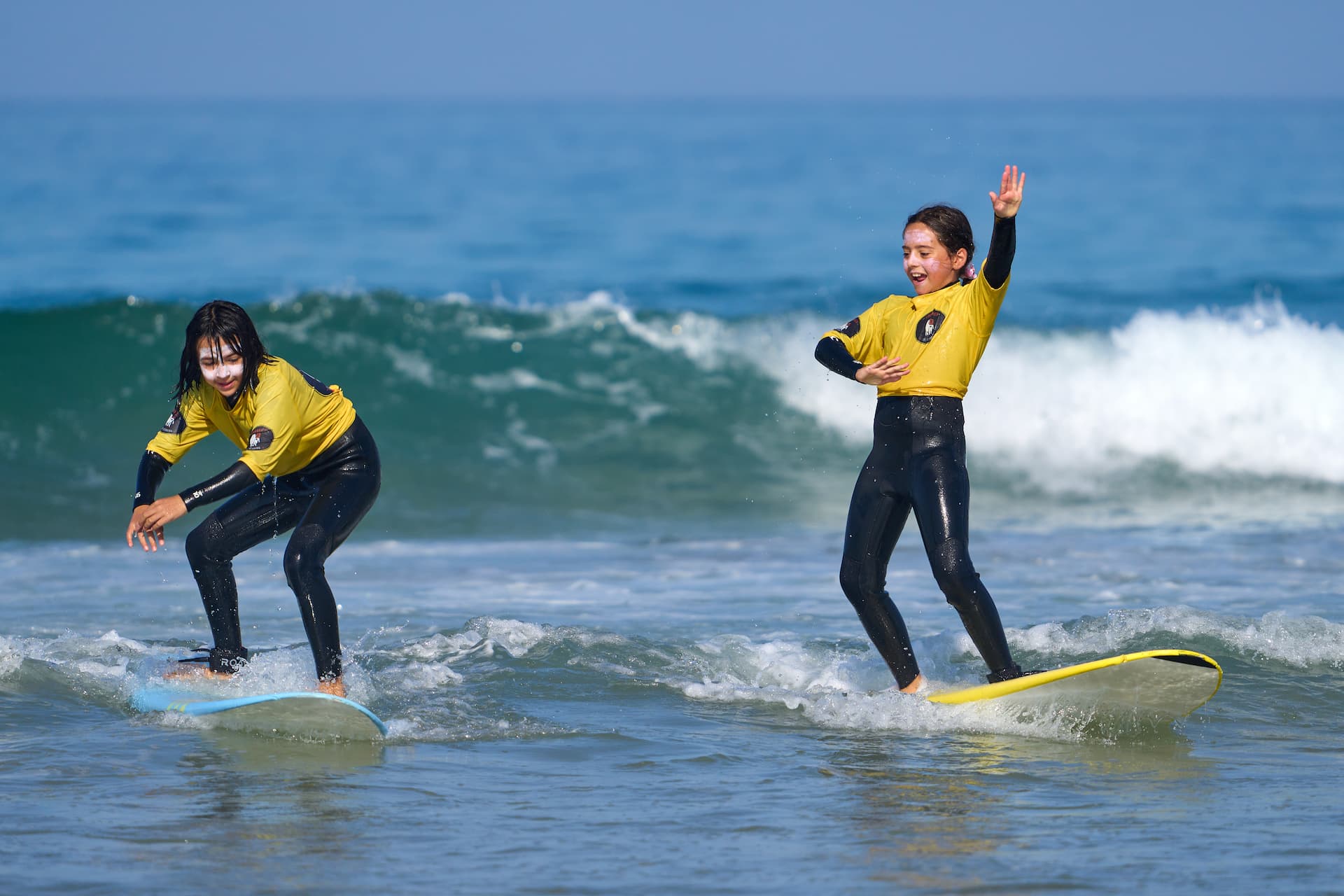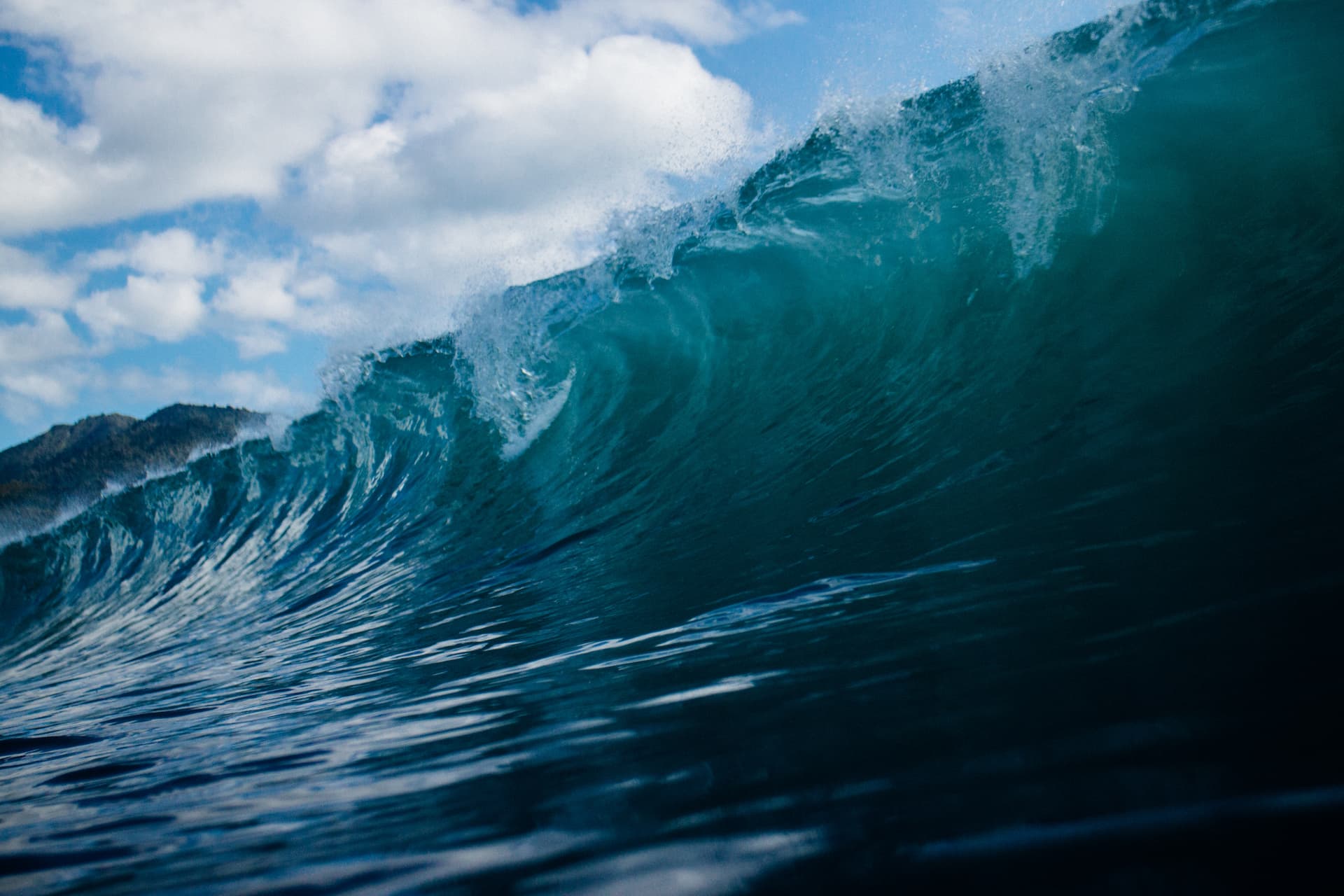Is surfing exhausting?
Is surfing scary for beginners?
As a beginner surfer, it is completely normal to feel nervous and intimidated when you first start out. The thought of riding a wave on a board can be daunting, especially if you're not familiar with the ocean or haven't tried any water sports before. However, it is important to remember that surfing is a thrilling and exhilarating experience, and with the right guidance and practice, you'll soon be catching waves like a pro!
The key to overcoming any fear or anxiety is to start small and build your confidence gradually. Begin by taking lessons with a qualified instructor who can teach you the basics and ensure your safety in the water. Practice on smaller waves and gradually work your way up to bigger ones. Always listen to your instructor and pay attention to your surroundings, such as currents and weather conditions. Remember to stay relaxed and enjoy the experience - surfing is all about having fun and connecting with the ocean!

Is surfing scary for beginners?
Surfing is an incredible sport that requires patience, skill, and dedication. For surfers, waiting for waves is an inevitable part of the surfing experience. While the duration of the wait can vary depending on the conditions, surfers are always ready to wait as long as it takes to catch that perfect wave.
In some cases, surfers may only have to wait a few minutes before a good set of waves roll in, while in other cases they may wait for hours without any success. However, experienced surfers know that patience is key and that waiting for the perfect wave is worth it. After all, the exhilaration of riding a good wave is a feeling like no other. So, whether they're waiting for minutes or hours, surfers know that the wait is always worth it.
How many hours should you surf a day?
When it comes to surfing, the ideal amount of time to spend in the water varies from person to person. Some surfers can spend hours catching waves, while others prefer to limit their sessions to just a few hours. Ultimately, the amount of time you spend surfing depends on your skill level, physical fitness, and personal preferences.
As a beginner, it's important to take it slow and gradually build up your surfing endurance. Start with shorter sessions of around 1-2 hours and gradually increase your time in the water as your fitness and technique improves. However, even experienced surfers should listen to their bodies and take breaks when they feel fatigued. Remember that surfing is a physically demanding activity, and pushing yourself too hard can lead to injuries or burnout. So whether you're a beginner or a seasoned pro, the key is to find a balance that works for you and allows you to enjoy the waves safely and sustainably.


Is surfing addictive?
It's no secret that surfing can be incredibly addictive. The thrill of catching a wave, the rush of adrenaline, and the feeling of being one with the ocean can be truly exhilarating. For many surfers, the addiction is not just about the physical sensations but also the mental and emotional benefits that come with riding waves. Surfing can provide a sense of freedom, escape from daily stresses, and a connection to nature that is hard to find in any other activity.
However, like any addiction, surfing can have its downsides. Some surfers may become so obsessed with the sport that they neglect other areas of their life, such as work, relationships, or health. Others may take unnecessary risks in pursuit of the perfect wave, leading to injuries or even death. It's important to remember that while surfing can be a wonderful and fulfilling hobby, it should never take over your life or put your well-being at risk. As long as you approach surfing with a healthy perspective and prioritize your safety and responsibilities, there's no reason not to enjoy the addictive thrill of riding waves.
Surf LessonsIs surfing a high risk sport?
Surfing is often seen as a high-risk sport, but it's important to understand that every sport comes with some level of risk. While it's true that surfing can be dangerous, it's also true that with the right precautions, it can be a safe and enjoyable activity for people of all skill levels. Many surfers wear helmets, wetsuits, and other safety gear to protect themselves from potential injuries. Additionally, they learn about the weather, tides, and currents, and other factors that can affect the safety of their surfing experience.
Of course, accidents can still happen, but that's true of any sport. The key is to understand the risks and take steps to mitigate them. Surfing can be an incredibly rewarding sport that provides a sense of freedom and connection with nature. It's important not to let fear hold you back from experiencing the thrill of catching a wave. So, while surfing may be considered a high-risk sport, with the right preparation and precautions, it can be a safe and enjoyable activity for all.


Are surfers happy?
Hey there! Surfing is one of the most exhilarating and challenging sports out there. The feeling of catching a wave and riding it all the way to shore is truly unmatched. But, the question is, are surfers happy? I would say that, for the most part, surfers are some of the happiest people you will ever meet.
Surfing is not just a sport, it is a lifestyle. Surfers spend their days chasing waves, being out in nature, and enjoying the sun and sea. This lifestyle promotes a sense of freedom, adventure, and connectedness with nature that is hard to find elsewhere. Surfing also requires a lot of patience and perseverance, which teaches surfers to appreciate the small victories and enjoy the journey. So, it's no surprise that surfers tend to have a positive outlook on life and a happy-go-lucky attitude. All in all, surfing is not just about catching waves, it's about finding happiness in the ocean and in life.
Do you need to be fit to surf?
If you're wondering whether you need to be fit to surf, the short answer is yes. But don't worry, you don't have to be a super athlete to hit the waves. Surfing requires a combination of strength, balance, and endurance, all of which can be improved with regular practice and exercise. Here are a few reasons why being fit can make a big difference in your surfing experience:
Firstly, surfing is a physically demanding sport that requires you to paddle, pop up on your board, and balance on the waves for extended periods of time. If you're not in good shape, you might find yourself struggling to catch waves, feeling tired quickly, or even getting injured. By building up your strength and endurance through activities like swimming, running, or yoga, you'll be able to paddle out further, catch more waves, and stay out in the water for longer without getting exhausted. Additionally, having good balance is crucial for surfing, as it allows you to maintain control over your board and navigate through the waves. By working on your core strength and balance through exercises like planks, squats, and yoga poses, you'll be better equipped to handle the challenges of surfing and enjoy the thrill of riding the waves.
In conclusion, while you don't have to be a fitness guru to surf, being in good physical condition can greatly enhance your surfing experience. By incorporating exercises that target strength, endurance, and balance into your routine, you'll be able to improve your paddling, catch more waves, and stay out in the water for longer. Plus, getting fit for surfing can be a fun and rewarding way to stay healthy and active. So why not give it a try and see how your surfing skills improve? The waves are waiting!

Check our other pages :
- Surf Lessons
- Best surf in Portugal
- Best surf in Lisbon
- Caparica surf
- Carcavelos surf
- Surf Lisbon
- Waves in Portugal
- Best surf
- Surf Portugal
- Surfing lessons
- Surf school
- Surf School in Portugal
- Surf School in Lisbon
- Surf School in Costa da Caparica
- Surf School in Caparica
- Surfing class
- surfers
- surfed
- shortboards
- surfing
- sup surfing
- surf breaks
- stand up paddling
- surf culture
- big wave
- stand up paddleboard (sup)
- longboarding
- surf camps
- surfing lifestyle
- paddleboard
- surf
- surf lessons near me
- learn to surf
- surfing classes near me
- surfing classes
- learn to surf near me
- surfing classes
- learning to surf at 50
- surfing near Lisbon
- How many lessons does it take to learn to surf?
- How much does it cost to learn surfing?
- How much should a surf lesson be?
- Is 30 too late to learn to surf?
- Can you surf if you can't swim?
- Is it risky to surf?
- Can you learn to surf in 3 days?
- Is surfing a cheap hobby?
- Is surfing easy or hard?
- What is the best age for surfing?
- Is surfing worth learning?
- Is surfing a good enough workout?
- Can a 70 year old learn to surf?
- Why do surfers surf so early?
- Is learning to surf hard?
- Is it OK to surf alone?
- Do you have to wear a wetsuit when surfing?
- Can you learn to surf in a day?
- Is surfing painful?
- What are the negative effects of surfing?
- Does surfing give you a good body?
- Is surfing scary for beginners?
- How long do surfers wait for waves?
- How many hours should you surf a day?
- Is surfing addictive?
- Is surfing a high risk sport?
- Are surfers happy?
- Do you need to be fit to surf?
- Is 1 foot enough for surfing?
- Is surfing exhausting?
- Can I start surfing at 26?
- What is the average height of a surfer?
- Can you learn to surf over 50?
- Is surfing good for your brain?
- Is surfing easier than skating?
- How many days you can learn surfing?
- What body type is best for surfing?
- Why do surfers have good skin?
- Can you get a six pack from surfing?
- Does surfing give you wrinkles?
- At what age do surfers retire?
- Does surfing make you younger?
- What is the first rule of surfing?
- Does surf hit everyone?
- Is it OK to surf at night?
- Whats the hardest thing about surfing?
- Surfing lessons in Lisbon
- Surfing lesson in Costa da Caparica
- Surfing lessons in Caparica
- Surfing lessons Costa da Caparica
- Surfing lesson in Lisboa
- Surf lessons Portugal
- Wanted Surf School
- Wanted Surf lessons
- Surf Camp
- Best Lisbon Surfing Lessons
- Surf Lessons for Beginners
- Surf Lessons for intermediate
- Surf Lessons for advanced
- Group Surf Lessons
- Private Surf Lessons
- Kids Surf Lessons
- surf course
- surfing academy
- surf instruction